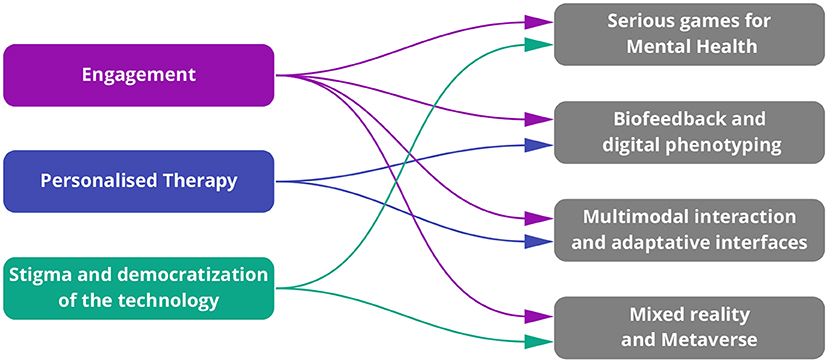Exploring Extended Reality Technologies for Mental Health: Challenges, Opportunities, and Future Trends
**Engaging News Story:**
**Title: Revolutionizing Mental Health Care with Extended Reality Technology**
In recent years, the importance of mental health has been increasingly recognized as a crucial aspect of overall well-being. With approximately 25% of the global population experiencing mental health issues at some point in their lives, the need for innovative solutions to support mental health has never been more urgent. The COVID-19 pandemic has further exacerbated mental health conditions, with anxiety and depression rates rising by 25% worldwide.
Technology has emerged as a powerful tool in addressing mental health challenges. From mobile apps to gesture recognition devices, technology has been leveraged for screening, diagnosis, and treatment of various mental health conditions. One technology that is gaining momentum in this space is extended reality (XR), which includes virtual reality (VR), augmented reality (AR), and mixed reality (MR).
XR technology offers immersive experiences that can be tailored to support cognitive behavioral therapy and exposure therapy for individuals facing anxiety, phobias, and other mental health issues. Research has shown that VR environments can elicit similar psycho-cognitive responses as real-world scenarios, making them effective tools for therapy.
Challenges such as engagement, personalized therapy, and stigma still exist in the adoption of XR for mental health care. However, advancements in serious games, biofeedback, and adaptive interfaces are paving the way for more engaging and personalized XR experiences. Additionally, the democratization of XR technology can help break down barriers to mental health care access and reduce stigma.
Looking ahead, the future of mental health care lies in the integration of XR technology with innovative solutions such as serious games, biofeedback, and multimodal interactions. By harnessing the power of XR, mental health practitioners can create more engaging, personalized, and accessible interventions for individuals of all ages and backgrounds.
As we continue to explore the potential of XR in mental health care, it is essential to address the challenges and seize the opportunities that this technology presents. By working together to develop innovative XR solutions, we can revolutionize the way mental health care is delivered and make a positive impact on the well-being of individuals worldwide.
